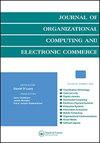Enterprise cybersecurity training and awareness programs: Recommendations for success
IF 1.9
4区 管理学
Q3 COMPUTER SCIENCE, INFORMATION SYSTEMS
Journal of Organizational Computing and Electronic Commerce
Pub Date : 2019-07-29
DOI:10.1080/10919392.2019.1611528
引用次数: 43
Abstract
ABSTRACT To help employees recognize and change their computing security behavior, organizations need to invest in cybersecurity training and awareness programs to encourage their employees’ active engagement in complying with their security policies. However, many organizations’ cybersecurity training and awareness programs fail to achieve their goals as employees feel bored with such training programs and lack enthusiasm to participate in them. Highlighting the criticality of the success of cybersecurity training and awareness programs in organizations, this paper identifies best practices and provides actionable insights (relating cyber awareness to employees’ personal life, reinforcing security procedures and guidelines, instilling a “relaxed alert” state of employees, and minimizing security fatigue for employees) that will help enterprises develop and implement economical, effective, and engaging cybersecurity training and awareness programs.企业网络安全培训和意识计划:成功建议
摘要为了帮助员工识别和改变他们的计算机安全行为,组织需要投资于网络安全培训和意识计划,以鼓励员工积极参与遵守其安全政策。然而,许多组织的网络安全培训和意识计划未能实现其目标,因为员工对此类培训计划感到厌倦,缺乏参与的热情。强调组织中网络安全培训和意识计划成功的关键性,本文确定了最佳实践,并提供了可操作的见解(将网络意识与员工的个人生活联系起来,加强安全程序和指南,向员工灌输“放松警惕”状态,并最大限度地减少员工的安全疲劳),这将有助于企业开发和实施经济、有效、,以及参与网络安全培训和提高认识方案。
本文章由计算机程序翻译,如有差异,请以英文原文为准。
求助全文
约1分钟内获得全文
求助全文
来源期刊

Journal of Organizational Computing and Electronic Commerce
工程技术-计算机:跨学科应用
CiteScore
5.80
自引率
17.20%
发文量
7
审稿时长
>12 weeks
期刊介绍:
The aim of the Journal of Organizational Computing and Electronic Commerce (JOCEC) is to publish quality, fresh, and innovative work that will make a difference for future research and practice rather than focusing on well-established research areas.
JOCEC publishes original research that explores the relationships between computer/communication technology and the design, operations, and performance of organizations. This includes implications of the technologies for organizational structure and dynamics, technological advances to keep pace with changes of organizations and their environments, emerging technological possibilities for improving organizational performance, and the many facets of electronic business.
Theoretical, experimental, survey, and design science research are all welcome and might look at:
• E-commerce
• Collaborative commerce
• Interorganizational systems
• Enterprise systems
• Supply chain technologies
• Computer-supported cooperative work
• Computer-aided coordination
• Economics of organizational computing
• Technologies for organizational learning
• Behavioral aspects of organizational computing.
 求助内容:
求助内容: 应助结果提醒方式:
应助结果提醒方式:


